
Breadcrumbs navigation
The best books on nuclear war (and how to stop it!)
This article was originally published by Shepherd, a book discovery website where authors and experts share their favourite books. We recently embarked on a partnership with Shepherd to showcase our members' books, so we're pleased to share this first article. Look out for further articles by BISA members in the coming weeks. Try their bookshelf on international relations or politics to browse a wide range of recommended books.
Why am I passionate about this?
I currently spend my time researching (and worrying about) nuclear war and how to stop it from ever happening. I live about 25 miles away from where the UK’s nuclear weapons are based, so I have a very personal interest in making sure that nuclear war never becomes a reality! As a lecturer at the University of Glasgow I’m also embarking on a four-year research fellowship with over £1 million in funding where I will be leading a team of experts to research how to improve nuclear arms control and disarmament. So keep in touch if you want to reduce the risk of nuclear war and ban the bomb!
I wrote...
Unparalleled Catastrophe: Life and Death in the Third Nuclear Age
By Rhys Crilley
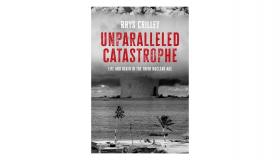
What is my book about?
After the American atomic bombing of Japan, Albert Einstein warned that "the unleashed power of the atom has changed everything… We thus drift towards unparalleled catastrophe." My book examines how today, we are no longer drifting but racing toward catastrophe at breakneck speed.
My book chronicles and analyses recent developments that have brought about a dangerous new nuclear era, where the threat of nuclear war once again looms large. From the collapse of arms control treaties to the development of hypersonic missiles via Donald Trump’s threats of ‘fire and fury’ and Vladimir Putin’s brutal invasion of Ukraine, my book explores the nuclear zeitgeist of today. We now stand on the brink of catastrophe. My book tells you why and what we can do about it.
The books I picked & why
Nuclear War: A Scenario
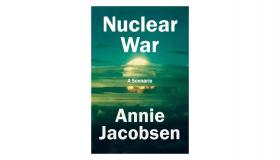
Why did I love this book?
Do you ever worry about nuclear war? Do you ever think about what would happen if nuclear weapons were actually launched by any of the nine countries that possess them?
I do, and Annie Jacobsen’s new book was the perfect book for me. It’s a thoroughly researched, absolutely gripping second-by-second account of how nuclear war might unfold.
From the first page, I was hooked. This nonfiction thriller grabs you and takes you through a devastatingly plausible scenario where a single nuclear missile launch by North Korea leads to a global nuclear war. The detail is harrowing. The facts read like fiction but are unbearably true. I loved how this book pulls no punches in outlining the nightmare that awaits us if nuclear weapons are ever used.
Hiroshima
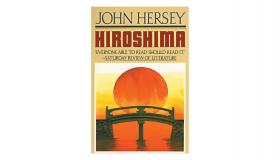
Why did I love this book?
I really enjoyed Christopher Nolan’s Academy Award-winning Oppenheimer movie, and this book is the perfect book to read after watching it. Hiroshima was the first widespread account of what Oppenheimer’s creation – the atomic bomb – did to the people of Hiroshima.
Written in the immediate aftermath of the nuclear bombing, Hiroshima tells the story of six men and women who survived amidst the destruction that killed over 100,000 other people. By focusing on these six survivors, Hersey makes the almost unimaginable scale of destruction achingly real and relatable. At one point, he describes "the wounded as silent as the dead around them," and this line sends shivers down my spine.
Few writers can conduct such detailed investigative reporting and tell the story in such a human way that still resonates today, nearly 80 years after it was first published.
Banning the Bomb, Smashing the Patriarchy
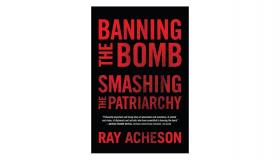
Why did I love this book?
A lot of people are consigned to the belief that nuclear weapons are here to stay and that nuclear disarmament is a naïve pipe dream. Ray Acheson’s book is the perfect remedy to this pessimistic malady, as it lays out the case for nuclear disarmament in an accessible way.
I love how Acheson grounds the book in academic research and gives a fascinating insider's account of how activists and diplomats worked together to make the Treaty on the Prohibition of Nuclear Weapons a reality. Acheson also demonstrates how the existence of nuclear weapons is reliant on the injustices of capitalism, sexism, colonialism, and racism.
I read this book and felt optimistic that ordinary people like you and me can challenge these injustices and achieve seemingly impossible things if we work together.
The Button: The New Nuclear Arms Race and Presidential Power from Truman to Trump
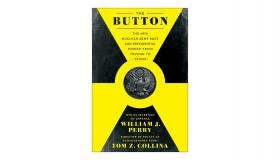
Why did I love this book?
One of my favourite things about this book is the clarity with which the authors—a former US Secretary of Defense and a leading nuclear policy advisor—diagnose what’s wrong with American nuclear weapons policy and propose solutions that would make us all safer.
I loved how the book is both a great public education resource (here’s what’s wrong with US nuclear policy) and a call to arms (here’s what you can do to make it better!). I also loved how the book makes it clear that the US approach to achieving national security through increasing reliance on nuclear weapons, in fact, makes the US less secure.
Disarming Doomsday: The Human Impact of Nuclear Weapons since Hiroshima
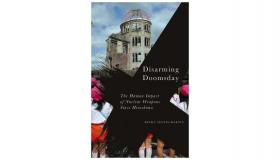
Why did I love this book?
Nuclear weapons are not just dangerous if they are used in a nuclear war. Their development, testing, production, deployment, and decommissioning are all harmful to the planet. My favourite thing about this book is how this fact is explored and examined at the global and local levels.
With a geographer’s attention to the specifics of space and place, Alexis-Martin takes us on a journey around the world and through history that illuminates how all parts of the nuclear weapon production cycle have harmed people whose stories we often don’t hear. From indigenous communities displaced by nuclear weapons production facilities to the British veterans who were used as lab rats and exposed to nuclear tests by the state, this book uncovers the often hidden history of nuclear weapons.
I really enjoyed this, especially as Alexis-Martin then reflects on how we can prevent nuclear war in the future.
Photo by Iñaki del Olmo on Unsplash


